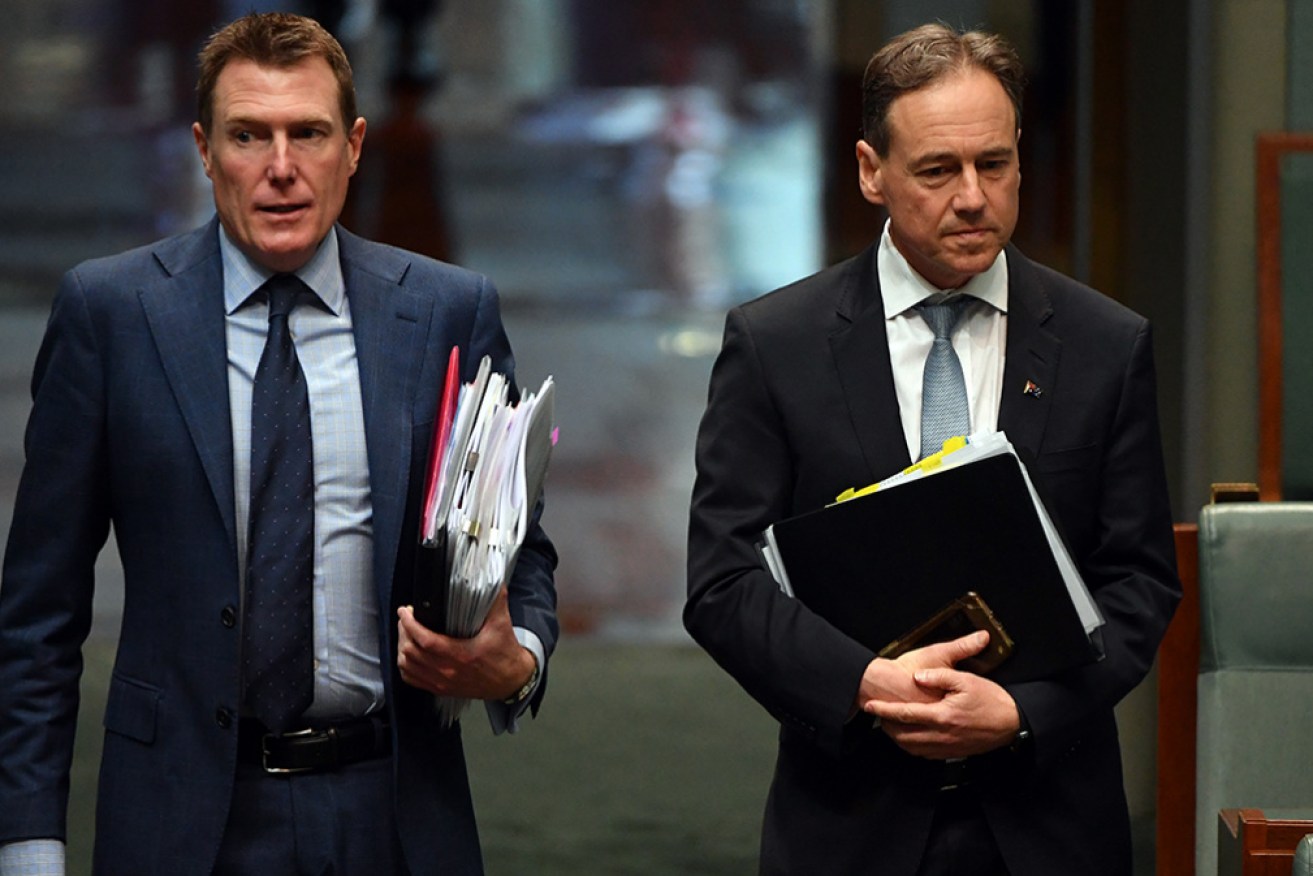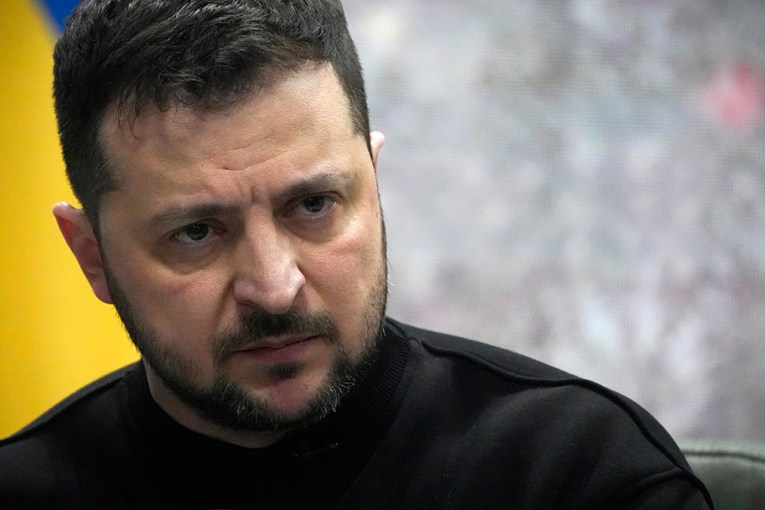Attorney-General keeps up fight for mandatory minimum jail sentences for pedophiles

Attorney-General Christian Porter, with Health Minister Greg Hunt on Monday, says he is "totally committed" to the reform. Photo: AAP
The Morrison government won’t accept Labor-led changes made in the Senate to a bill toughening sentences for pedophiles.
On Monday night, Labor used a procedural tactic in the upper house to vote down imposing mandatory minimum sentences for child sex abusers.
Attorney-General Christian Porter said the move was disappointing, considering that last year 39 per cent of convicted commonwealth child-sex offenders did not spend a single day in jail.
Labor leader Anthony Albanese last week said his party would assist in “whatever way necessary” to toughen penalties against child-sex offenders.
However, mandatory minimum sentences go against the ALP’s national platform.
The Senate is debating laws that introduce mandatory sentences now
These rules do not work: they do not deter, they do not allow for the range of human culpability, they entrench unfairness
This is more about shouting than justice#auslaw #auspol @thelawcouncil #EdenMonaro https://t.co/qs1iIfvR71
— Fi McLeod AO SC (@FiMcLeodSC) June 15, 2020
Mr Porter said the government remained “totally committed” to the reform and would return the bill to the Senate, with mandatory sentencing included in it.
Labor frontbencher Murray Watt said mandatory sentencing made it harder to catch, prosecute and convict criminals.
“Mandatory sentencing is wrong in principle, does nothing to reduce or deter crime and, worst of all, it has adverse consequences,” he told Parliament.
Greens senator Nick McKim used the example of an 18-year-old with a 15-year-old partner swapping sexual material through social media could be caught up in the laws.
“We are risking here a series of gross miscarriages of justice where young Australians could end up imprisoned for up to seven years,” he said.
Government minister Jane Hume rejected the claim, saying existing safeguards meant police and prosecutors had to decide pursuing the offence was in the public interest.
She said consenting teenagers have not been prosecuted.
Law Council president Pauline Wright said mandatory sentencing would set a dangerous precedent, potentially leading juries to make not guilty decisions for low-end offences.
“Mandatory minimum sentences impose unacceptable restrictions on judicial discretion and independence, are inconsistent with rule of law principles and undermine confidence in the system of justice,” she said.
The Law Council believes mandatory sentencing is inconsistent with Australia’s international human rights obligations.
-AAP








